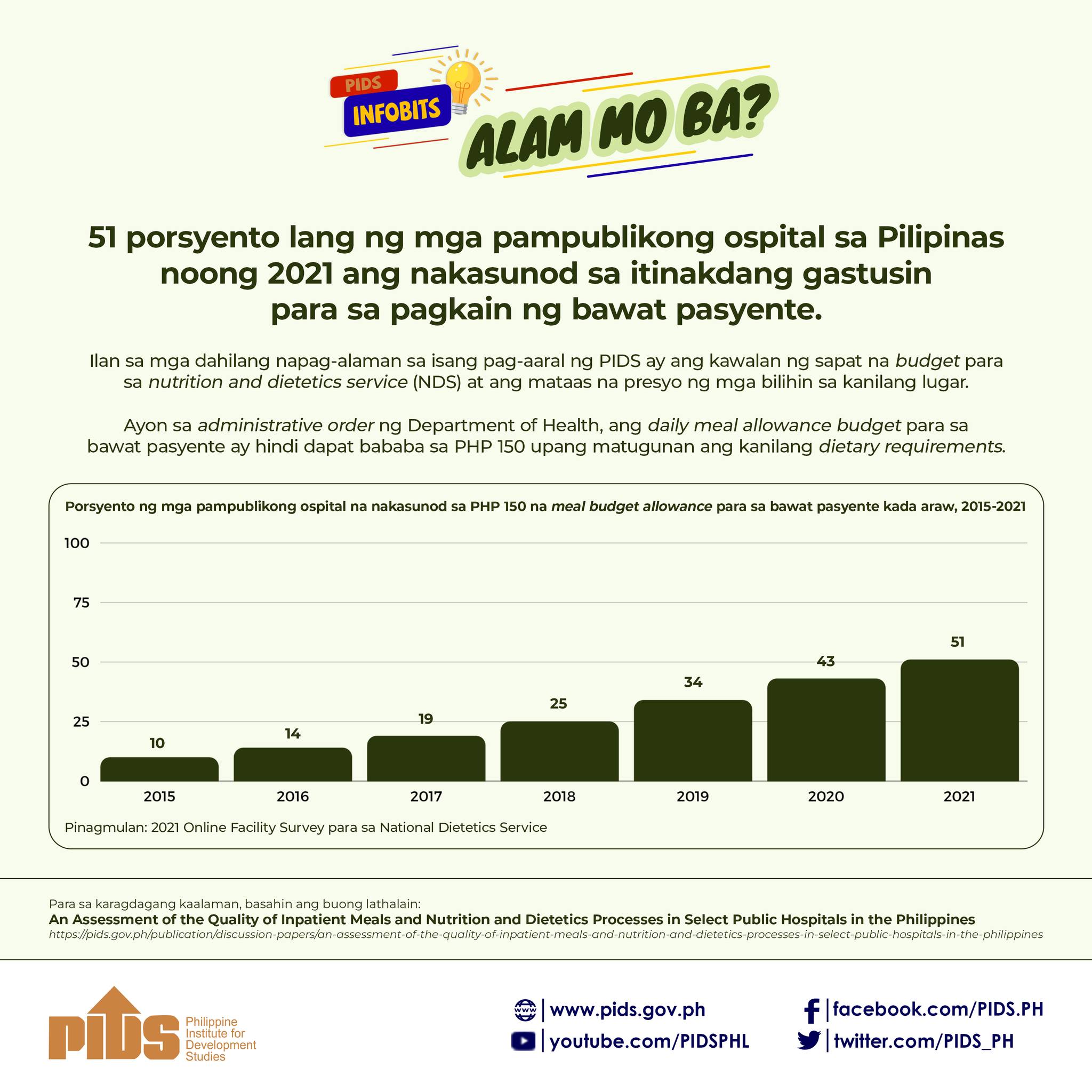MANDATED price caps for public procurement of medicines must be reviewed as some pharmaceutical purchases made for public hospitals do not translate to lower medicine costs for the general public, according to the Philippine Institute for Development Studies (PIDS).
In a discussion paper, PIDS Fellow Michael R.M. Abrigo, Research Analyst Katha Ma-i M. Estopace, Consultant Gina A. Opiniano, Research Analyst II Zhandra C. Tam, and Administrative Assistant II Sherryl A.Yee recommended that the Drug Price Reference Index (DPRI) be reviewed.
Based on the study, price setting using the DPRI affects medicine procurement for drugs with few suppliers, making the approved budget of contract (ABC) too low compared to the market price of drugs.
“DPRI-compliance is associated with long procurement posting and higher propensity for procurement failure, but not with lower procurement price,” Abrigo, Estopace, and the other researchers said.
“There may be a need to rethink how DPRI is calculated, potentially expanding it to include trends in market prices rather than tender prices, to insulate it from erratic price changes based on few tenders, taking into consideration its intended function as price revelation mechanism,” they added.
Further, in light of the Mandanas Ruling taking effect this month, the PIDS researchers recommended that local governments pursue “pooled procurement” to facilitate the procurement process and reduce medicine prices.
“There may also be a need to more intently pursue pooled procurement at the province level if a national-level pooled procurement mechanism is difficult to pursue. As shown by our analysis, procurement at greater quantities is associated with lower procurement prices,” they said.
Based on the study, the PIDS researchers found the government purchased P20.1 billion worth of medicines in 2019, more than double the P7.8 billion recorded in 2014.
They said a third of the purchases made in that year consisted of procurement opportunities for drugs and medicines that had insufficient descriptions available to allow purchase.
Further, among the common challenges faced when purchasing medicines, the researchers said, was failed bids. This happens where there are bidders or there are a few bidders, leaving insufficient justification to award a contract.
“When health services ask suppliers why they didn’t participate in the bidding, they are informed that their ABC is too small compared to the market price of the medicine. This becomes a concern because the procurement of medicines is limited by the price range set by DPRI,” the researchers said.
This is part of the reason the researchers recommended the review of the DPRI. Currently, the DPRI is an important index because the Commission on Audit (COA) examines the DPRI for medicine and other pharmaceutical purchases.
Other issues that were raised include the times when a medicine is found in the DRPI but not in the National Drug Formulary; lack of availability; and problems with monitoring inventory.
The discrepancy between the DPRI and the NDF is a concern, because the NDF assures that the medicine is of good quality and is widely used by health services throughout the country.
‘Price caps on state hospital drug buys merit a review’












